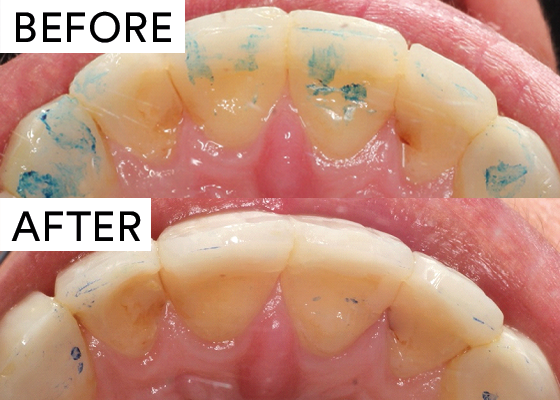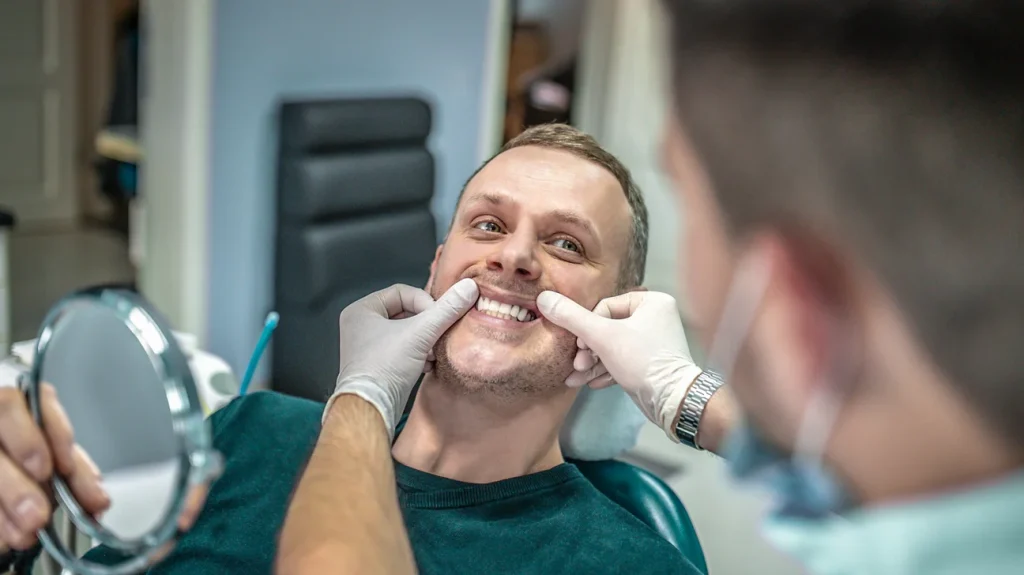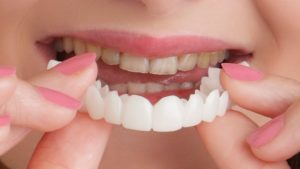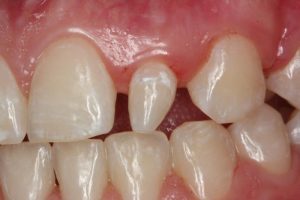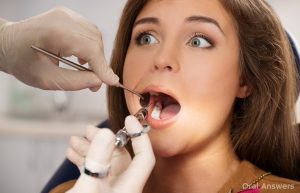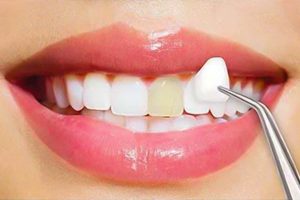I had to get a root canal because I broke my bottom molar in the back about a month ago eating a hard popcorn kernal. After I got the crown, I knew immediately that it didn’t feel like my usual bite. The dentist ground it down a little, but I left that day with it still being off. He said it would get better.
I let it go for a week, but every time I would bite or clench my teeth together, they just didn’t fit. So, I went back in to have him fix it, but he was really hesitant to grind much more, saying I just needed to get used to “my new bite.”
Does it weaken the crown to grind it down? I just can’t figure out why my dentist won’t fix how my teeth fit together.
Preston, Branson, Missouri
Dear Preston,
It’s not fun to have to get a root canal and crown, but it’s even more frustrating to have your occlusion, or bite, feel off. Because eating is essential, it’s not like you can just avoid biting and chewing. Correcting the bite is a routine part of placing a crown. If your dentist is hesitating, it may mean that either he doesn’t know how to fix it or is uncomfortable doing so.
How dentists correct the bite on your crown
Your bite will never feel exactly the way it did with your original tooth. The dentist can shape the contour to match it as closely as possible. Dentists use a special registration paper to have you “tap tap” your teeth together. This helps them see what parts of the tooth are hitting before the other parts. They can then grind down those spots. It doesn’t weaken the crown to fix those small spots.
You can give yourself some more time to try to adjust to your crown. If you continue to experience discomfort, you will need to do something. It’s not good for your jaw to have your bite off. You could try to see your dentist again, but if he was uncomfortable or not knowledgeable to do it right the first time, it may not end well. You may need to see another dentist to fix it who has a high spot in dentistry.
Understanding the Importance of Proper Occlusion:
Proper occlusion, or the way your teeth come together when you bite, is crucial for the comfort and longevity of dental restorations, including crowns. Bite issues can lead to discomfort, pain, and potential complications if not addressed promptly.
Common Reasons for Bite Discomfort After Crown Placement:
- Occlusal Adjustment:
Sometimes, the crown may alter your bite, leading to discomfort. An occlusal adjustment, where the dentist reshapes the crown or opposing teeth, is a common solution.
- Crown Thickness:
If the crown is too thick or thin, it can affect your bite. A properly contoured crown ensures a harmonious fit within the dental arch.
- Uneven Bite Force:
Uneven distribution of bite force can occur if the crown is higher or lower than the adjacent teeth. This can lead to discomfort and may indicate the need for an adjustment.
- Temporary Changes:
It’s normal to experience some sensitivity or discomfort immediately after crown placement. However, persistent issues require attention.
Steps to Take When Your Dentist Won’t Adjust Your Bite:
- Express Your Concerns:
Clearly communicate your discomfort and concerns to your dentist. Ensure they understand the nature of the issue and how it’s affecting your daily life.
- Request an Occlusal Analysis:
Ask your dentist to perform an occlusal analysis to assess your bite. This involves evaluating how the upper and lower teeth come together and identifying any discrepancies.
- Seek a Second Opinion:
If your concerns persist and your dentist is unwilling to make adjustments, consider seeking a second opinion from another qualified dentist. A fresh perspective can provide valuable insights.
- Consult a Specialist:
In some cases, seeking the expertise of a prosthodontist, who specializes in bite issues and dental restorations, may be beneficial. They can offer a comprehensive evaluation and recommend appropriate adjustments.
- Document Your Symptoms:
Keep a record of your symptoms, including when they occur and any activities that worsen or alleviate the discomfort. This documentation can assist in conveying the severity of the issue to your dentist or another oral health professional.
Advocating for Your Dental Well-Being:
It’s crucial to advocate for your dental well-being and seek resolution when facing bite discomfort after a crown. Open communication with your dentist, requesting a thorough evaluation, and being proactive about addressing the issue are key steps in ensuring that your dental treatment results in both comfort and functionality.
